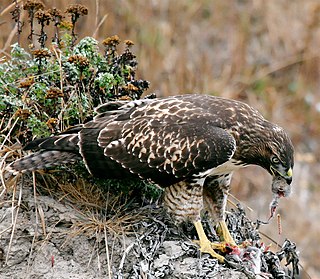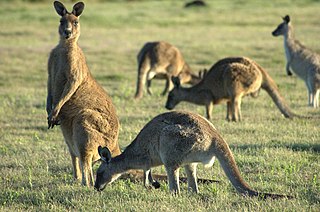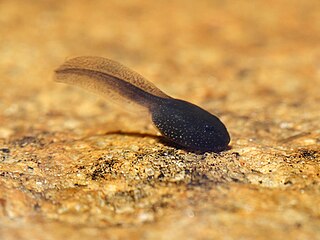
Speciesism is a term used in philosophy regarding the treatment of individuals of different species. The term has several different definitions within the relevant literature. Some sources specifically define speciesism as discrimination or unjustified treatment based on an individual's species membership, while other sources define it as differential treatment without regard to whether the treatment is justified or not. Richard Ryder, who coined the term, defined it as "a prejudice or attitude of bias in favour of the interests of members of one's own species and against those of members of other species." Speciesism results in the belief that humans have the right to use non-human animals, which scholars say is pervasive in the modern society. Studies from 2015 and 2019 suggest that people who support animal exploitation also tend to endorse racist, sexist, and other prejudicial views, which furthers the beliefs in human supremacy and group dominance to justify systems of inequality and oppression.

Wildlife refers to undomesticated animal species, but has come to include all organisms that grow or live wild in an area without being introduced by humans. Wildlife was also synonymous to game: those birds and mammals that were hunted for sport. Wildlife can be found in all ecosystems. Deserts, plains, grasslands, woodlands, forests, and other areas, including the most developed urban areas, all have distinct forms of wildlife. While the term in popular culture usually refers to animals that are untouched by human factors, most scientists agree that much wildlife is affected by human activities. Some wildlife threaten human safety, health, property, and quality of life. However, many wild animals, even the dangerous ones, have value to human beings. This value might be economic, educational, or emotional in nature.
Moral agency is an individual's ability to make moral choices based on some notion of right and wrong and to be held accountable for these actions. A moral agent is "a being who is capable of acting with reference to right and wrong."
Animal ethics is a branch of ethics which examines human-animal relationships, the moral consideration of animals and how nonhuman animals ought to be treated. The subject matter includes animal rights, animal welfare, animal law, speciesism, animal cognition, wildlife conservation, wild animal suffering, the moral status of nonhuman animals, the concept of nonhuman personhood, human exceptionalism, the history of animal use, and theories of justice. Several different theoretical approaches have been proposed to examine this field, in accordance with the different theories currently defended in moral and political philosophy. There is no theory which is completely accepted due to the differing understandings of what is meant by the term ethics; however, there are theories that are more widely accepted by society such as animal rights and utilitarianism.

Wild animal suffering is the suffering experienced by non-human animals living outside of direct human control, due to harms such as disease, injury, parasitism, starvation and malnutrition, dehydration, weather conditions, natural disasters, and killings by other animals, as well as psychological stress. Some estimates indicate that these individual animals make up the vast majority of animals in existence. An extensive amount of natural suffering has been described as an unavoidable consequence of Darwinian evolution and the pervasiveness of reproductive strategies which favor producing large numbers of offspring, with a low amount of parental care and of which only a small number survive to adulthood, the rest dying in painful ways, has led some to argue that suffering dominates happiness in nature.

Welfare biology is a proposed cross-disciplinary field of research to study the positive and negative well-being of sentient individuals in relation to their environment. Yew-Kwang Ng first advanced the field in 1995. Since then, its establishment has been advocated for by a number of writers, including philosophers, who have argued for the importance of creating the research field, particularly in relation to wild animal suffering. Some researchers have put forward examples of existing research that welfare biology could draw upon and suggested specific applications for the research's findings.
In the philosophy of consciousness, the anti-nesting principle states that one state of consciousness cannot exist within another.

Óscar Horta Álvarez is a Spanish animal activist and moral philosopher who is currently a professor in the Department of Philosophy and Anthropology at the University of Santiago de Compostela (USC) and one of the co-founders of the organization Animal Ethics. He is known for his work in animal ethics, especially around the problem of wild animal suffering. He has also worked on the concept of speciesism and on the clarification of the arguments for the moral consideration of nonhuman animals. In 2022, Horta published his first book in English, Making a Stand for Animals.

Sentientist Politics: A Theory of Global Inter-Species Justice is a 2018 book by the English political theorist Alasdair Cochrane, published by Oxford University Press. In the book, Cochrane outlines and defends his political theory of "sentientist cosmopolitan democracy". The approach is sentientist in that it recognises all sentient animals as bearers of rights; cosmopolitan in that it extends cosmopolitan political theory to include animals, rejecting the importance of state borders and endorsing impartiality; and democratic in that it aims to include animals in systems of representative and cosmopolitan democracy. It was the first book to extend cosmopolitan theory to animals, and was a contribution to the "political turn" in animal ethics – animal ethics informed by political philosophy.
The eradication or abolition of suffering is the concept of using biotechnology to create a permanent absence of involuntary pain and suffering in all sentient beings.

The predation problem or predation argument refers to the consideration of the harms experienced by animals due to predation as a moral problem, that humans may or may not have an obligation to work towards preventing. Discourse on this topic has, by and large, been held within the disciplines of animal and environmental ethics. The issue has particularly been discussed in relation to animal rights and wild animal suffering. Some critics have considered an obligation to prevent predation as untenable or absurd and have used the position as a reductio ad absurdum to reject the concept of animal rights altogether. Others have criticized any obligation implied by the animal rights position as environmentally harmful.

Ole Martin Moen is a Norwegian philosopher who works primarily with applied ethics and value theory. He is Professor of Ethics at Oslo Metropolitan University and Researcher in Philosophy and Principal Investigator for the 5-year research project "What should not be bought and sold?" at the University of Oslo, funded by the Research Council of Norway.

The relationship between animal ethics and environmental ethics concerns the differing ethical consideration of individual nonhuman animals—particularly those living in spaces outside of direct human control—and conceptual entities such as species, populations and ecosystems. The intersection of these two fields is a prominent component of vegan discourse.

The ethics of uncertain sentience refers to questions surrounding the treatment of and moral obligations towards individuals whose sentience—the capacity to subjectively sense and feel—and resulting ability to experience pain is uncertain; the topic has been particularly discussed within the field of animal ethics, with the precautionary principle frequently invoked in response.
Suffering-focused ethics are those views in ethics according to which reducing suffering is either a key priority or our only aim. Those suffering-focused ethics according to which the reduction of suffering is a key prioritiy are pluralistic views that include additional aims, such as the prevention of other disvaluable things like inequality, or the promotion of certain valuable things, such as pleasure. Nevertheless, these views still prioritize reducing preventable suffering over these other aims.
Catia Faria is a Portuguese moral philosopher and activist for animal rights and feminism. She is assistant professor in Applied Ethics at the Complutense University of Madrid, and is a board member of the UPF-Centre for Animal Ethics. Faria specialises in normative and applied ethics, especially focusing on how they apply to the moral consideration of non-human animals. In 2022, she published her first book, Animal Ethics in the Wild: Wild Animal Suffering and Intervention in Nature.
The replaceability argument, or the logic of the larder, is a philosophical argument that has been used to reject vegetarianism. It holds that consuming nonhuman animal products is good for animals because if they were not consumed, fewer animals would be brought into existence. The argument has particularly been engaged with within the context of utilitarianism.
"The Meat Eaters" is a 2010 essay by the American philosopher Jeff McMahan, published as an op-ed in The New York Times. In the essay, McMahan asserts that humans have a moral obligation to stop eating meat and, in a conclusion considered to be controversial, that humans also have a duty to prevent predation by individuals who belong to carnivorous species, if we can do so without inflicting greater harm overall.
Kyle Johannsen is a Canadian philosopher who is the author of a A Conceptual Investigation of Justice (2018) and Wild Animal Ethics (2020). He specialises in animal and environmental ethics, as well as political and social philosophy. He is presently affiliated with Trent University, Wilfrid Laurier University, and Queen's University.

Animal Ethics in the Wild: Wild Animal Suffering and Intervention in Nature is a 2022 book by the philosopher Catia Faria published by Cambridge University Press. It examines wild animal suffering as a moral problem. Faria contends that if we have a moral obligation to aid those in need, we should intervene in nature to prevent or alleviate the suffering of wild animals, as long as it is practical and leads to a net positive outcome.











